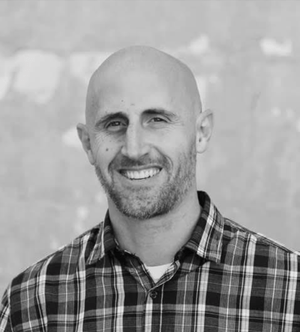My wife’s uncle is a urologist. He has dealt with countless patients who are battling with kidney stones. Many within the medical community say that they (and renal pain in general) are worse and more acute than any other type of pain. As a physician he understands the clinical and scientific reasons for what causes kidney stones. He is someone who has been up close and personal with patients who are suffering with them. But he recently shared that it wasn’t until he had a kidney stone himself that he was able to really comprehend the agony and empathize with his patients at a whole different level.
He has three different layers of knowledge that combined to genuinely make him an expert. He has academic knowledge from his years of study, devouring literature, and comprehending the backdrop of what causes stones. He has proximate knowledge by spending countless hours with men and women suffering from kidney stones. Thirdly, he now has incarnational knowledge from suffering with the malady himself. This places him in unusually rare territory as it relates to deeply understanding the incredible suffering that comes from this painful malady. These trifold forms of knowledge provide him with three legs for the proverbial stool from which he can sit as an authority and expert regarding kidney stones.
This approach to analyzing suffering is worth considering. There is a temptation to opine, complain, and criticize others when we see them make mistakes or react to certain forms of suffering. Like armchair quarterbacks, we decry the blunders we see and offer up articulate feedback on how things should have gone differently. The hubris of this type of behavior is astounding if we think about it long enough. It’s one thing to share dismay regarding an errant throw or a fumble that we witness in a football game on television. But what about trickier and more challenging realities like abortion, racial injustice, poverty, or education? One doesn’t have to spend more than five minutes on Facebook to find “experts” on any one of these issues.
These matters are extraordinarily complex and nuanced, so we should enter conversations surrounding these issues with tremendous humility – particularly if we are not gifted with trifold knowledge regarding them. Like trying to sit on a stool missing a leg or two, we should understand that our position on these matters is tenuous and precarious at best.
Let’s take abortion for example. Many evangelicals have strong opinions on the issue. It is a big deal. How many people have deep-dived on the history of abortion, its methods, or even the different reasons for why women would elect to have one in the first place? How many people know someone who is considering having an abortion or are near someone who has had one? How many people addressing abortion have themselves wrestled with whether to abort their own child? Thousands and thousands are deeply invested in the topic of abortion with their time and energy. They have strong and sometimes radioactive opinions on the subject. But many of them haven’t done their homework, don’t know a single person who has had an abortion, and have not considered having one personally. Despite all of this they are experts and authorities. One can’t fault them for having a strong opinion, but one should address whether they are approaching the issue humbly.
We see similar shortsightedness displayed regarding issues of racial justice and poverty. There are many folks whose rhetoric and demeanor would have us believe they have completed solved these complex issues. They have solutions to what’s wrong in poor neighborhoods, how minority communities should behave, what the church’s responsibility is, and how we should respond as individuals. And yet, all this expertise emerges without them cracking a book on the issues, living near poor and ethnically diverse communities, or being a poor minority themselves. Their vantage point is mostly shrouded in ignorance.
As stated before, the trifold layers of knowledge that my wife’s uncle received led to truer understanding, humility, and empathy for others. It seems that pride, rage, and accusations are the currency of those missing legs from their stool. Like blinded boxers they flail around violently hoping their reckless bravado will make up for what they are lacking through study, awareness, friendship, and personal experience. Pride and hubris become substitutes for poise and humility. Stubborn and calloused solutions are offered in lieu of admitting much of life’s challenges are rife with complexity.
Poverty and power might be at opposite ends of a spectrum. But it is foolish for those dwelling at the polarities to offer harsh and authoritative critiques of those at the other side without having the knowledge or experience of what it is like to do life at that end. Whether you were to find yourself unexpectedly wealthy in possession of $1 million tomorrow or horribly destitute without a penny, there is no way to know how you would steward that situation unless you had been in that place already. It’s for this reason that so much of the finger wagging, vitriol, and chest thumping going on in the political, racial, and social arenas today teeters on the edge of absurdity.
When we are truly humble, we don’t necessarily have to compromise our position on an issue, but we seek to be bighearted and gentle in our posture. We understand that there are restrictions and limitations to our understanding. We assume the position of a learner instead of a teacher. We pursue understanding instead of demanding to be understood. Our hearts are moved by empathy and not ire.
Jesus displayed this trifold knowledge, and it came chiefly through His incarnation. As a child He “increased in wisdom and stature” (Luke 2:52). By coming to earth and clothing Himself in human flesh He made Himself proximate to other humans and utterly enmeshed in the human experience itself. He made us. He lived among us. He became us.
Jesus was and is the authority and expert on us and all of humanity. But he gained these Three Forms of Knowledge and experience through humility, and He paid a terrible price for it as well. We are struck by His compassion and kindness. We are moved by His love and understanding for our brokenness. If anyone had the right to wag a finger, criticize our decision making, or beat His chest as an authority it was Christ, and yet we see none of this. He models for us the way of love. In such confusing and tribalized times we find in the life of Jesus a better way.
Prayer Requests:
- May we pray for a spirit of gentleness, humility, and empathy as we seek to tackle complicated issues regarding poverty, race, and injustice.
- May we repent of ways that we’ve allowed arrogance, pride, or ignorance to influence our behavior or rhetoric as it relates to dealing with others who may hold a different opinion.
- May we pray for opportunities to grow in understanding and empathy regarding complex issues through ongoing learning, relationships, and personal experience.












